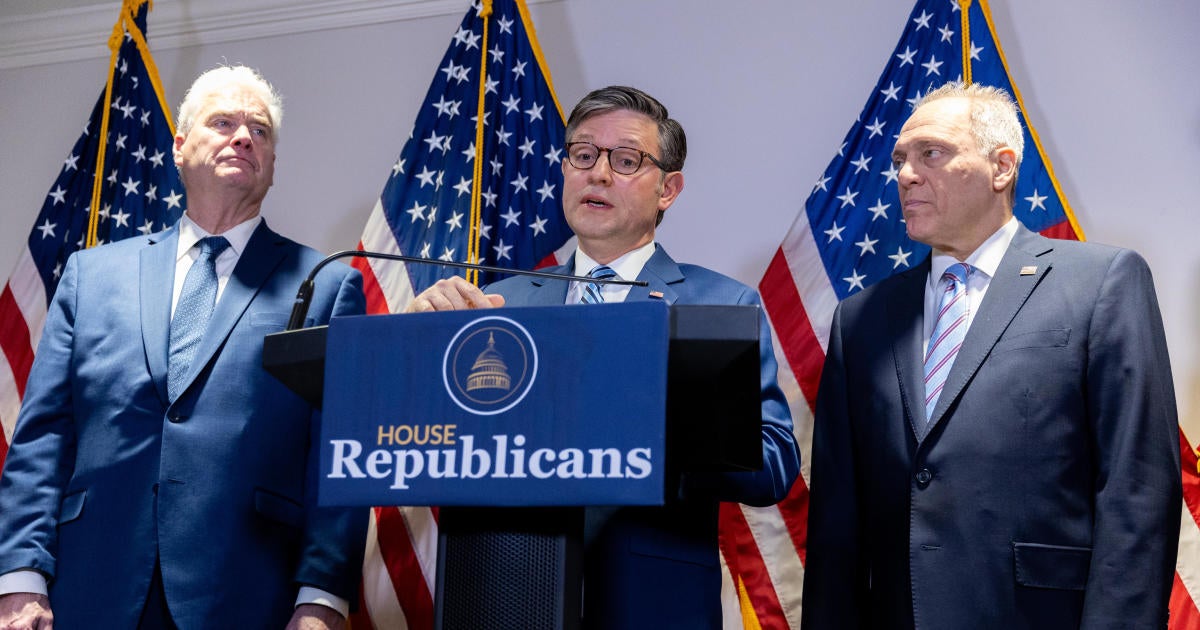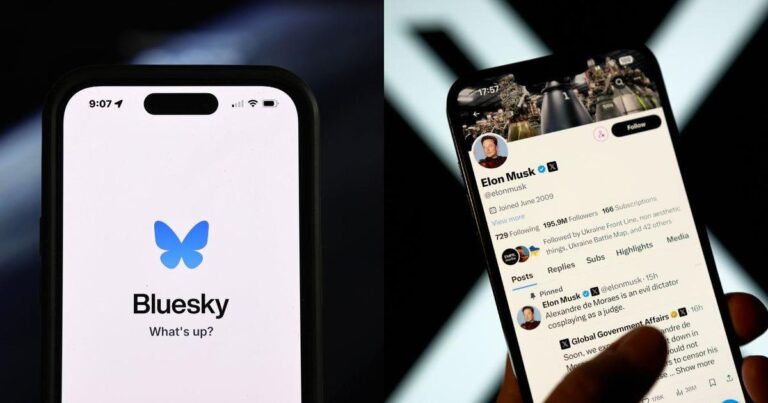
Washington – House Speaker Mike Johnson abandoned a last-minute measure to keep the government funded through the spring and avoid a shutdown as he faced a revolt from fellow Republicans and a number A growing number of allies – including President-elect Donald Trump – have opposed it. billions of dollars in spending this had been added to the bill.
House Majority Leader Steve Scalise, a Republican from Louisiana, confirmed that the interim financing measure released Tuesday is dead and the path forward is unclear.
“There is no new agreement at this time,” Scalise said.
Lawmakers face a Friday deadline to approve new spending. The measure released Tuesday would have extended funding through March 14, but it also included disaster aid, a health policy extension and a pay raise for members of Congress, among other provisions. The disaster relief portion of the bill alone had a cost of $110 billion.
In a statement On Wednesday, Trump and Vice President-elect JD Vance criticized Johnson’s approach and said Republicans should pass “a streamlined spending bill that doesn’t give Chuck Schumer and the Democrats everything they want “. They also called on House Republicans to raise the debt ceiling, which limits the amount the government can borrow to pay its bills.
“Republicans want to support our farmers, fund disaster relief, and set our country up for success in 2025. The only way to do that is to pass a temporary funding bill WITHOUT DEMOCRATIC GIFTS combined with an increase in debt ceiling,” they said. . “Anything else is a betrayal of our country.”
The debt ceiling was not part of these negotiations and Republicans generally oppose raising it. Trump’s decision to include this issue in the shutdown negotiations adds a new dimension to the legislative fight with just two days before the funding expires.
“Raising the debt ceiling is not a good idea, but we prefer to do it on Biden’s watch,” Trump and Vance wrote. “If Democrats won’t cooperate now on the debt ceiling, what makes you think they would in June under our administration? Let’s have this debate now.”
At the U.S. Capitol, Vance did not respond when asked whether he and Trump supported a shutdown.
The resolution continues
When it was unveiled Tuesday, the spending legislation immediately drew the ire of several members of the House Republican conference, primarily aimed at Johnson. While the speaker pledged to avoid the kind of massive year-end spending that conservatives hate, the end product looks like a scaled-down version of what the party’s right wing has railed against for years NOW.
But Republicans’ narrow majority in the House means Johnson would have needed Democratic votes to pass the bill, a dynamic that gave the minority more leverage to extract concessions during negotiations. House Minority Leader Hakeem Jeffries hinted at Democratic influence amid reports that Johnson could scale back the bill, writing in a statement. post on: “You break the bipartisan agreement, you assume the consequences that result from it.”
“Republicans have now decided unilaterally to break a bipartisan agreement that they had made,” Jeffries, a New York Democrat, said Wednesday evening. “House Republicans will now be responsible for any harm to the American people resulting from a government shutdown or worse. A deal is a deal. It was bipartisan. And there’s nothing left to say.”
White House press secretary Karine Jean-Pierre also called on Republicans to “keep their word.”
“Republicans must stop playing politics with this bipartisan deal or they will harm American workers and create instability across the country,” she said in a statement.
Johnson, a Republican from Louisiana, acknowledged that the bill was intended to be “very thin” before “a few things in between” happened, citing the devastation left by hurricanes earlier this year.
Alex Wong/Getty Images
Before the text of the bill was released, Johnson dismissed Republican concerns that the current resolution amounted to an “omnibus” bill, a term used when Congress consolidates annual appropriations bills that fund numerous federal government agencies in one large piece of legislation.
“It’s not an omnibus, okay?” Johnson said Tuesday during his weekly press conference. “It’s a little [continuing resolution] that we had to add things that were out of our control. These are not man-made disasters. These are things that the federal government has an appropriate role to play. »
Johnson had also pledged to give members 72 hours to read the bill before voting, but lawmakers said they expected a vote as early as Wednesday, which would give them less than 24 hours to go through the text of nearly 1,550 pages. The path forward was thrown into doubt by Trump’s statement, with speculation growing that Johnson could scrap the current version of the bill and propose a narrower funding expansion that includes disaster relief.
Rep. Eric Burlison, a Republican from Missouri, on Tuesday called the process a “total dumpster fire.” He said he was “disappointed” with Johnson and called on him to “communicate better”. Other members, like Rep. Chip Roy of Texas, have double bill the “Cramnibus”. Rep. Kat Cammack, a Republican from Florida, said the measure was “a Band-Aid mixed with fentanyl.”
“There’s a certain sandwich made of feces, and that’s what I would compare it to,” said Rep. Anna Paulina Luna, also of Florida. She argued that combining disaster relief with these measures put members in a difficult situation. “It’s a fucking sandwich. I don’t know how else to say we’re forced into this position.”
The fight could result in a challenge to Johnson’s presidency when the new Congress meets on January 3. Rep. Thomas Massie, a Kentucky Republican, said Wednesday he would not support Johnson in the presidential election.
“I’m not voting for him,” Massie said. “It solidifies it.”
Massie said he has spoken with other members who have a similar position.
Johnson also faced strong opposition outside the House. Elon Musk, co-head of Trump’s advisory department for government efficiency, said in an article on X that any lawmaker “who votes for this outrageous spending bill deserves to be voted out in 2 years.” Musk posted dozens of times throughout the day calling on lawmakers to oppose the bill, which he called “criminal.”
The speaker told Fox News Earlier in the day, he discussed the situation with Musk and Vivek Ramaswamy, the other co-head of DOGE, on Tuesday evening. Johnson said he stressed to them that passing a continuing resolution now would “clear the decks” and allow new Republican majorities to “put our fingerprints on spending” in March.
Musk and Ramaswamy still spoke out strongly against the bill.
The stopgap measure would expire about two months into Trump’s second term, sparking a new budget battle as Republicans try to pass Trump’s top priorities in his first 100 days. Although they will control both chambers of Congress, House Republicans will operate with a slimmer majority until vacant seats occupied by members joining the Trump administration are filled.





